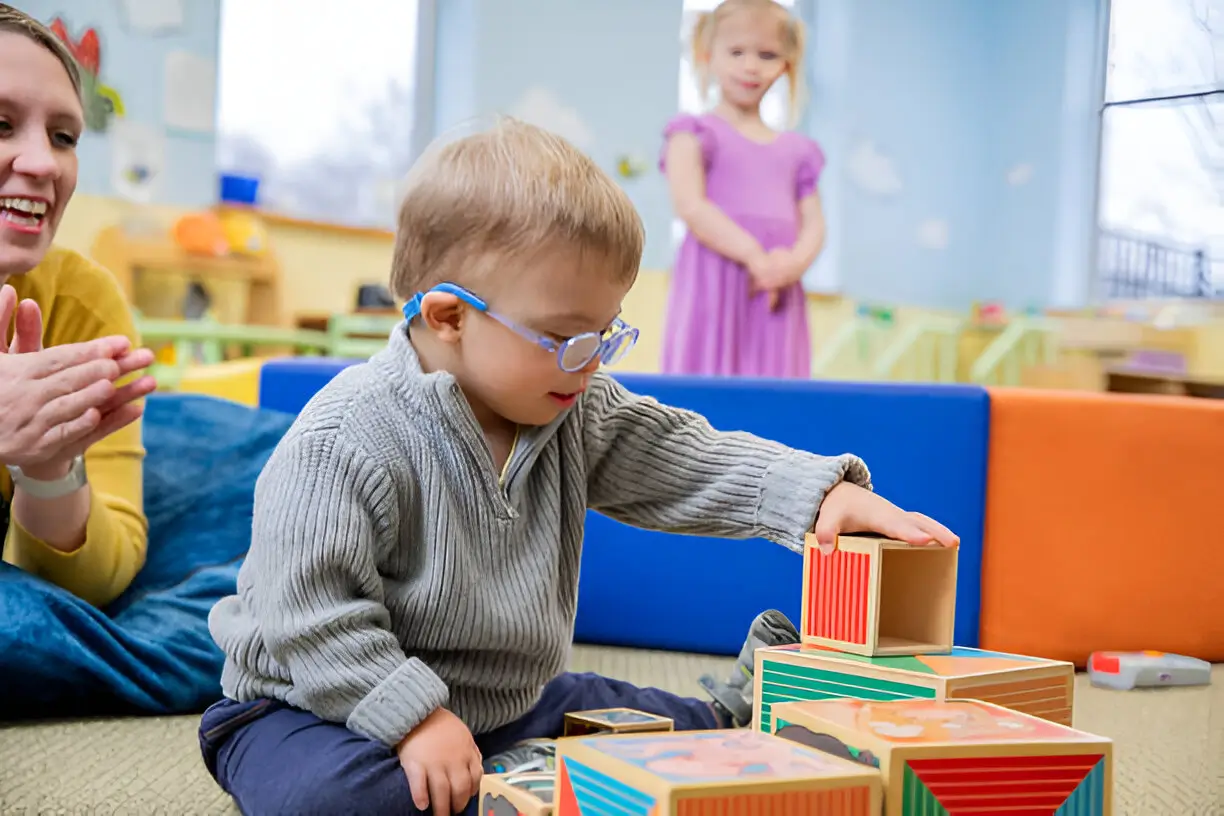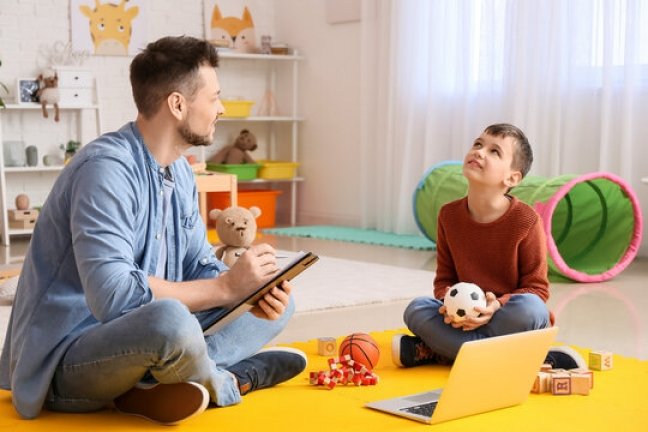The most commonly used behavior therapy for autism is called Applied Behavior Analysis (ABA). It is a popular and effective method of care for children diagnosed with autism. ABA focuses on behavioral modifications, targeting social skills, communication skills, reading skills, and school assignments, among other areas. It is also useful for writing, dressing, cleaning, punctuality, and career-related tasks. Social skills therapy for autism can dramatically improve the lives of those with autism and the people around them.

Importance Of Behavior Therapy For Children With Autism
Children who are on the autism spectrum have certain difficulties that make it difficult for them to engage in social interactions. They experience problems in social interactions and communication, maintaining conversation, and making friends.
Behavior therapy for autism is supposed to tackle these challenges by offering individuals well-organized approaches. These interventions help children to understand how to manage their social relationships in a better manner.
The long-term objective of behavior therapy for autism is to have such kids become more happy and self-sufficient.
Since children are in a developmental period, the enhanced social skills enable them to grasp the environment appropriately. Autism social skills therapy, involves learning these crucial social skills within a secure setting.
Learn More: 10 Speech Therapy Exercises for Children with Autism: Unlock Kids’ Potential
Autism behavior intervention strategies:
The Autism behavior intervention strategies are:
-
Social Stories
Social stories are short, basic stories that can be used to teach the child or children with autism how to behave in certain situations.
These can be specific to demonstrate certain situations, such as making friends, playing with friends, sharing toys, or changing schedules.
By teaching the various steps in different social interactions, social stories assist children in gaining an understanding of what is expected of them in different situations.
-
Role-Playing
Role play entails assigning people to certain roles and scenarios typical of a given society so that people can emulate appropriate responses and behaviors.
This strategy makes children feel at ease in a given social situation since they are exposed to these interactions in controlled settings.
For instance, parents and therapists can devise a plan by emulating simple interacting experiences, such as introductions and turn-taking, when they usually experience disagreements.
As a part of behavior therapy for autism, the reinforcement techniques above can be very useful in managing its symptoms.
-
Video Modeling
Video review involves the demonstration of desirable behaviors and interaction patterns using videos. These are social stories that can make children with autism enjoy the videos and then mimic every move they make.
This strategy is very effective because it creates a literal picture painted in the subject’s heart and uses examples to correct the erring behavior.
Topics of videos can be anything from starting a conversation to even recognizing faces and gestures. This is the autism behavior intervention strategy that can be suitable for many children with the disorder.

-
Peer-Mediated Interventions
In this mechanism, children who do not have disabilities are used in the therapy process to promote the right model of behavior. These peers are taught how to handle a child with autism within social arenas.
This strategy provides ample opportunity for real-life practice and enables autistic children to build normal social relations with fellow kids.
It becomes a relevant component in developing social interaction in autistic children.
-
Social Skills Groups
Playgroups involve an assembly of autistic children to rehearse social behaviors in a prescribed environment. Run by therapists, such groups involve educational, recreational, and communicative exercises along with role plays.
In group lessons, children can emulate others, develop correct techniques, and receive feedback in a non-threatening manner.
This is a form of social skills training for people with autism and is one of the forms of behavior management for autism.
Tips For Parents And Caregivers
Supporting a child with autism in developing social skills can be challenging, but these tips can make the process more manageable:
Be Consistent: Consistency is key in behavior therapy. Reinforce social skills at home and in different settings to help your child generalize what they’ve learned.
Create Opportunities: Provide ample opportunities for your child to practice social interactions. Arrange playdates, join social skills groups, or participate in community activities.
Use Visual Supports: Visual aids like charts, pictures, and videos can help children understand social expectations and routines more clearly.
Celebrate Progress: Celebrate small victories and milestones in your child’s social development.
Seek Professional Help: If you’re struggling to support your child’s social skills development, don’t hesitate to seek professional help from therapists and specialists.

Role Of North Texas Pediatric Therapy
North Texas Pediatric Therapy significantly offers effective behavior therapy for autism. They provide an excellent strategy using evidence-based practices and a client-centered treatment plan.
By using their team of therapists and specialists, North Texas Pediatric Therapy also makes it possible for every child to get the kind of assistance that would help to develop their social skills to the fullest.
Especially valuable to their success is the focus on autism social skills development. The services offered by North Texas Pediatric Therapy are:
Wrapping Up
Through social stories, role-play, modeling and video, peer-mediated interventions, and social skills training, behavior therapy for autism helps augment social skills in autistic kids.
These strategies offer children a routine and facilitative setting to comprehend better and manage social relationships.
Cohesion with regular practice and positive reinforcements help autistic children acquire the appropriate social skills to be more independent and happy.
These techniques are worthwhile when considering therapy or self-help practice for parents and guardians raising children.
Contact North Texas Pediatric Therapy for the best results for your child with autism.


